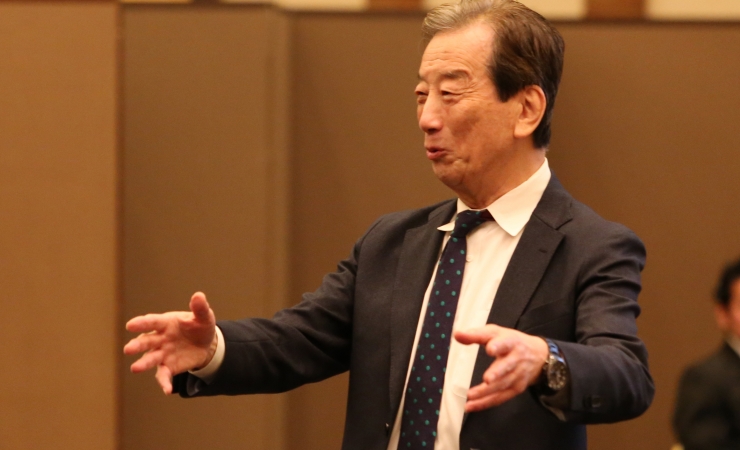
Japan’s presidency of the G20 2019 has come to an end. Discussions at the G20 Health Ministers’ Meeting held in Okayama Prefecture on October 19th and 20th, 2019, focused on three themes: the achievement of UHC, response to population aging, and management of health risks and health security including antimicrobial resistance (AMR). Among the commitments made at that meeting, dementia was directly mentioned five times in twelve items for responding to population aging, once again demonstrating a shared recognition that dementia is an issue that must be confronted with international cooperation. (Okayama Declaration of the G20 Health Ministers)
The commitments indicated two points of major expectation towards the future. The first was the promotion of research and development. The Ministers agreed to further promote research and development to lower dementia risk and enhance early detection, diagnosis, and interventions over the life course. Concerning risk reduction, a topic of great concern to society, particular emphasis was placed on the need for more science-based discussion of risk factors and social determinants. The second point was the need to build dementia-inclusive environments. The Ministers agreed to further the creation of environments that are appropriate from the perspectives of people with dementia by improving understanding of dementia, preventing and overcoming stigma, and encouraging the engagement of all relevant stakeholders from the international level to the community level.
These points reinforce the goals of research, care, risk reduction, and communication agreed upon at the March 2018 WDC Tokyo Conference, confirming that WDC discussions are successfully leading international trends.
Alongside the G20 2019 Health Ministers’ Meeting (held October 19th to 20th, 2019), the WDC hosted a side event in Tokyo entitled “WDC Summit 2019 Tokyo - The legacy of the G20 Japanese presidency.” Health and Global Policy Institute (HGPI) participated in the side event as a cooperating organization. At the meeting, discussions were deepened on topics such as the promotion of research and development for treatment as well as methods for improving Quality of Life (QOL) for people with dementia, their families, and their caregivers. It was a valuable opportunity to announce new partnerships in the effort to promote research and development as well as to introduce the WDC’s new dementia toolkit and discuss future expectations for each government’s dementia policies.
The present situation in Japan
2019 was an epoch-making year for dementia policy in Japan. On June 18, 2019, the Japanese government unveiled the first cross-ministerial national strategy, the Framework for Promoting Dementia Care. In addition, the Basic Law for Dementia was also submitted to the Diet. The Basic Law for Dementia requires the continuous formulation and revision of national strategies and we expect deliberations on it to proceed in the future.
Expectations for the G20 2020
Saudi Arabia will serve as President of the G20 2020. Saudi Arabia is a geopolitically important country spanning three continents and is linked to key shipping points through the Bab-el-Mandeb Strait, the Strait of Hormuz, and the Suez Canal. As relations among European countries and between the U.S. and China remain unclear, expectations for Saudi Arabia's leadership are high. Empowering people, safeguarding the planet, and shaping new frontiers have already been unveiled as the three pillars of the G20 2020 agenda on the G20 2020 website. With a focus on people with dementia, their families, and their caregivers, we expect discussions on promoting sustainable and innovative research and development, care, and community-building to advance.
The role of the WDC going forward
The following graph was generated with Google Trend, which shows trends in how frequently certain terms are searched for on Google. It shows the search frequency for the terms “Alzheimer” and “Dementia” in Japanese and English. It is clear that searches for these terms have increased dramatically since the WDC was established in December 2013. Increasing global awareness towards dementia is one of our most important roles.
Currently, the WDC is conducting two projects: The Project for Gathering Evidence on Dementia-friendly Communities and the International Meeting on Data-sharing. These projects are aligned with the Commitments made at the G20 2019 Health Ministers’ Meeting discussed above. Cooperation from multi-stakeholders is essential for both projects. They require industry, academia, healthcare providers, governments, and people with dementia, their families, and caregivers to advance towards shared goals. Through these projects, discussions at the WDC, and collaboration with various stakeholders, we must support efforts to produce global solutions for issues in dementia.
__________
Professor Kiyoshi Kurokawa MD is a member of the World Dementia Council and chairman of the Health and Global Policy Institute (HGPI), Japan
Shunichiro Kurita MPM is a senior associate at the Health and Global Policy Institute (HGPI), Japan